Guides • Perfecting your Craft
Last updated on Oct 15, 2025
Romance: Publishing’s Hottest Genres and Subgenres
Martin Cavannagh
Head of Content at Reedsy, Martin has spent over eight years helping writers turn their ambitions into reality. As a voice in the indie publishing space, he has written for a number of outlets and spoken at conferences, including the 2024 Writers Summit at the London Book Fair.
View profile →While many readers and writers have long dismissed romance as a pulpy, disposable, and non-serious genre of fiction (check out our complete list of book genres here), the truth is that it's a billion-dollar industry that consistently produces bestselling authors. Many of these authors are reaching vast audiences without the help of a traditional press, making the romance genre a haven for indie publishers.
In this guide, we'll dive into the world of romance fiction — showing you the landscape and giving you tips for writing and publishing your own book. To get you started, let us introduce you to some of the most popular romance subgenres today:
1. Contemporary Romance
 Contemporary romance is the most prominent romance subgenre, generally encompassing stories set after the 1970s. Because contemporary romance deals with modern problems and themes, you can expect a degree of realism here that you won't often find in other subgenres.
Contemporary romance is the most prominent romance subgenre, generally encompassing stories set after the 1970s. Because contemporary romance deals with modern problems and themes, you can expect a degree of realism here that you won't often find in other subgenres.
Q: What factors contribute to the success of self-published authors in the romance genre?
Suggested answer
I think the most successful self-published or indie authors in romance have or consider the following:
- They read widely in the genre and take in just as much as they are putting out. They don't only read their genres, but they actively learn from other genres and writers.
- They rework the manuscript and run it by multiple people: alpha readers, beta readers, editors, writing communities, etc. It takes a lot to make a book good, and sometimes we can overlook issues because we're so attached to the writing. Self Published and Indie authors work on their own and don't get the benefit of an agent or in-house editorial team, so if they want their writing to stand out they need to make their own editorial team.
- A solid launch plan or strategy. Indie authors and Self Published Authors who are trying to succeed (if we mean high sales) need to have a strong strategy and marketing plan in place. They aren't just writing for the sake of writing at that point, but making it a business so there needs to be effort put into how they share about their books.
- A writing community. Bonding with other self published authors, connecting with local indie bookstores, joining writing communities, etc. All of this helps you build a support team and offers you a chance to help others succeed as well.
Val is available to hire on Reedsy ⏺
It's all about romance readers. The ones who love romance tend to be voracious readers, consuming more fiction than other genre readers, though they also read widely and across genres. So there's a huge appetite for constant new stories. Romance readers also don't mind--in fact they expect--that the books use familiar tropes, as long as they're delivered in a fresh way.
It's also important to remember that successful self-published romance authors are romance readers themselves, who love and respect the genre, and so they deliver it in a satisfying way.
Margot is available to hire on Reedsy ⏺
No matter what genre you write in, there must be a strong protagonist that is likable and relatable to readers. You want a main character that readers will root for throughout the story. This does not mean they need to be perfect, just likable. Think about what characters you like in a friend, and give your main character those qualities.
Melody is available to hire on Reedsy ⏺
Steaminess Rating: PG-13 to R
Gateway novel: Something Borrowed by Emily Giffin. The main character, Rachel, has always been friendly and played by the rules until... she falls in love with her best friend's fiancé. The novel explores the morals of love and friendships in today's society.
😻 There are many shades of romance. Learn all about them in this comprehensive post.
Click to tweet!
2. Romantasy
Romantasy is a portmanteau of “romance” and “fantasy” — and one can accurately describe it as an equal blend of, yep, those two genres. As a romance genre, it's relatively new: it only became a household name a few years ago, thanks to BookTok! But true to its label, it takes classic elements from both romance and fantasy, from the chosen ones and magic to the love triangles and friends-to-lovers arcs.
Steaminess Rating: PG-13 to R
Gateway novel: Sarah J. Maas is famous for being one of the authors who kickstarted the romantasy craze, and her ongoing "A Court of Thrones and Roses" series is evergreen on Booktok. Start with the first book, A Court of Thorns and Roses, in which 19-year-old Feyre is dragged into the dangerous world of the Fae by her captor, Tamlin.
2. Young Adult Romance
Young adult romance novels are all about those awkward, confusing feelings of being young and desperately in love. A typical YA romance story involves two or more teenagers dealing with an "impossible love" that challenges them, although it usually ends positively.
Q: How do I choose the right genre for my book?
Suggested answer
My advice is to not worry about genre until you've written the manuscript. This way, you're writing with the passion you have for the story you want to tell, rather than trying to conform to the expectations of a certain genre that your story may or may not fit into. It complicates the drafting process.
When you're finished drafting, think about the kinds of books you've read that seem similar in style, tone, voice, pacing, structure, themes, etc. What bookshelves are they sitting on? What are they listed under on Amazon and Goodreads? Google them, like this: What genre is [Title of Book] by [Author Name]? You might get a few different genres in the search results, and that's ok. Once you have a list of possible books with an established pattern of genres, you can start to narrow down where yours might sit.
Research the traditional elements, themes, and expectations of that genre. Does yours contain those same qualities? We also tend to write stories in the same style as some of our favourite authors and books that we gravitate toward, so take a look at some of their books. Does it seem to have some similarities?
Once you nail down some good comparable titles, you'll be able to narrow down your story's genre. Don't compare the plot; instead, look for story elements. If you'll be pitching your book to agents, you'll want to choose two strong comp titles (with author names) to use in the query letter, and the genre of these books typically must match the genre in which you're pitching your book. This helps the agent determine what kind of a story they're in for as they get into the plot paragraphs and allows them to envision where it might sit on bookshelves. This can also be useful for marketing purposes when it comes time.
So: story first, genre later!
Kathleen is available to hire on Reedsy ⏺
There are two ways to look at this. First, you want to play to your strengths. Have you gotten good feedback for your fantasy stories? What genre is easiest for you to plot and write in? What genre gets you excited?
Second, you want to "go where they are not." This was advice received from young adult author and multiple award-winner, Richard Peck when attending a writing retreat. If there is a glut of westerns in the market, for instance, with lots of competition, you may want to steer clear of this genre. However, if this genre has books flying off the shelves and selling like hot cakes, it might be time to throw your hat in the ring if this is something you enjoy writing.
Overall, writers tend to do better when they write what they know and read, and write stories they really want to tell.
Finally, another question to ask yourself is, "What is the story only I can write?" And then try writing that story.
Melody is available to hire on Reedsy ⏺
Steaminess Rating: PG
Gateway novel: Eleanor & Park by Rainbow Rowell. The title characters are two geeks who struggle to fit in and end up connecting on the school bus thanks to their shared passion for comic books. As their affection for each other grows, their relationship is challenged by bullies and unsupportive parents.
Learn how to write an irresistible romance from professional romance editor Kate Studer by signing up below.
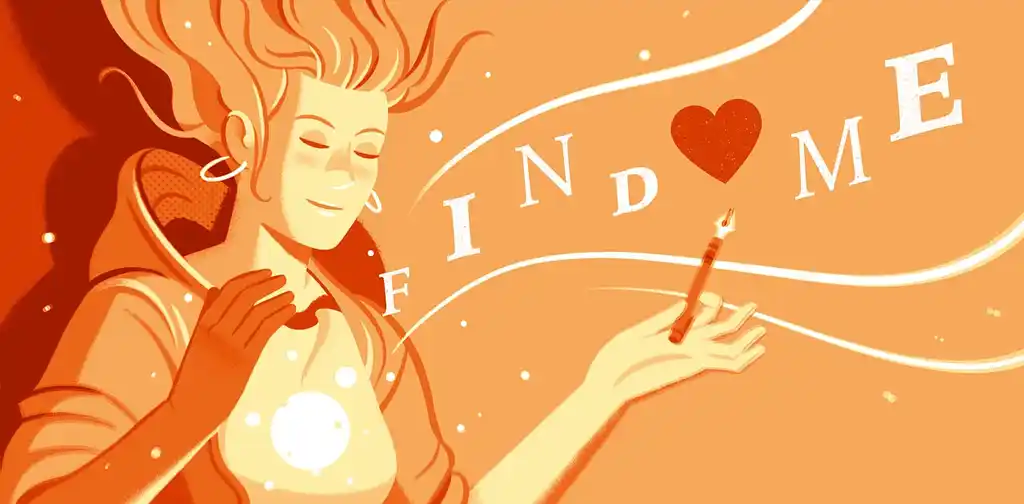
FREE COURSE
How to Write an Irresistible Romance
10 lessons to help you plan, draft, and publish a swoon-worthy romance.
3. Erotic Romance
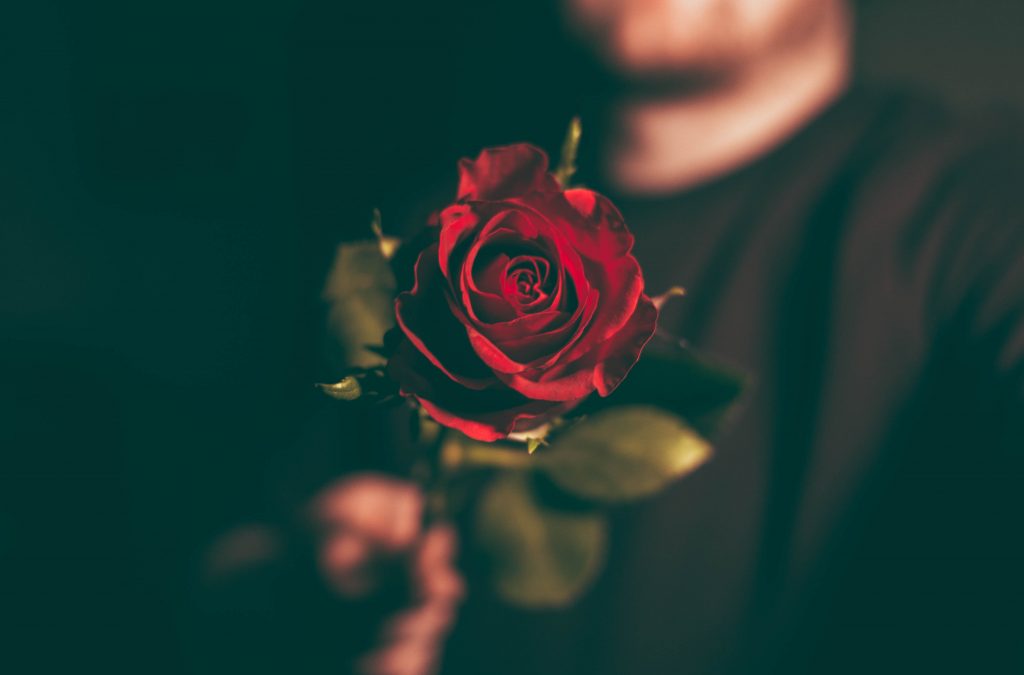 If you were under the impression that erotic romance is just cover-to-cover sex, think again. The much-anticipated 'steamy' scenes in this subgenre are fundamental to plot-building and should reflect the development of a romantic relationship between the protagonists. Erotic romance is often characterized by compelling characters, absorbing plots and, yes, strong sexual content.
If you were under the impression that erotic romance is just cover-to-cover sex, think again. The much-anticipated 'steamy' scenes in this subgenre are fundamental to plot-building and should reflect the development of a romantic relationship between the protagonists. Erotic romance is often characterized by compelling characters, absorbing plots and, yes, strong sexual content.
Q: How explicit (or "spicy") can and should the romantic or sexual content be in a self-published romance novel?
Suggested answer
As much or as little as you're comfortable with! There are all levels of heat in self-published romance novels, from sweet to spicy.
Just make sure you hint to your reader which you are--through your cover and the way you describe your book--so you draw in the audience that's looking for your exact heat level!
Michelle is available to hire on Reedsy ⏺
What a loaded question.
First and foremost, spice needs to match the overall tone of both the book and the characterization. More frequently than what I'd like to see, are books that float along in one tone -- usually contemporary snark and humor -- and we hit the bedroom, and now we are all hardcore and pushing boundaries. A change like that comes out of the blue and feels jarring without the proper set-up in characterization.
As long as the tone matches, then the level of spice reverts to author comfort. Generally there are three heat levels: sweet, spicy, erotic. Sometimes "sensual" falls between sweet and spicy. But you can further break it down into three types of bedroom scenarios: closed door, fully consummated, or erotic and fetish.
One trend I see regularly in romance novels that I think needs to be discussed: writing to market cliches.
Authors have a perception of the market they are writing in, and most have read what they are writing. The trouble zone is when authors are forcing a book to expectations that don't fit the story line or characters. I see this in cliche lines in the bedroom. (I'm so trying to be g-rated here!) In fact, those lines now pop out to me jarringly. Things characters say (or do!) that don't match the personality they have been given, that are total reader-bait, because another / other books in the genre have effectively used them. Those lines... don't have the power, oomph, or impact behind them if they don't match the characters. Period.
Let's see if I can exemplify a little more while staying PG-13.
Your hero isn't any more sexy or compelling because he tells the heroine what to do at a critical moment in the bedroom. What has made that line work in other novels and makes readers swoon, is the overall characterization for the hero and between the couple. If that overall characterization isn't present, the line stands out as out of place and as the author intruding on the scene.
So I can't emphasize enough that what you "should" do follows the way the entire story line is developed. If you want to write erotic content, then that needs to be established via characterization and narrative long before the sexy times come into play. You create your readership. Your readers come to your stories because they like what you write. And you should always write what makes you comfortable, regardless of what heat level is involved.
Claire is available to hire on Reedsy ⏺
Steaminess Rating: X
Gateway novel: Fifty Shades of Grey by E.L. James. College student Ana becomes infatuated with Christian Grey, a mysterious (and fabulously wealthy) entrepreneur. As she enters his orbit, they start a sexual relationship governed by NDAs and BDSM, pushing Ana to her limits.
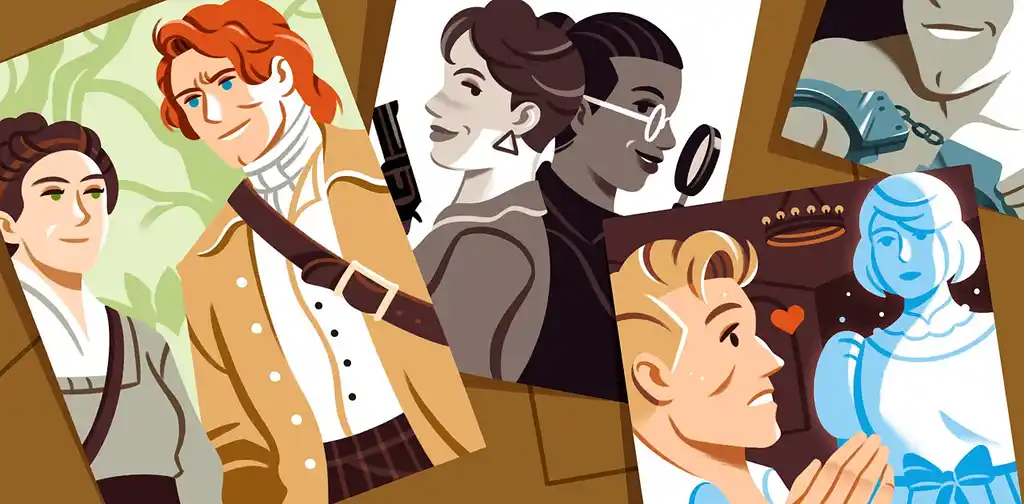
FREE COURSE
How to Turn Up the Heat in Your Romance
10 lessons on how, when, and where to add steamy scenes to your novel.
4. Historical Romance
Unsurprisingly, historical romance features love stories set in ye olde times: from medieval Europe or the Oregon Trail to the pristine English countryside in the 1600s. This subgenre requires rigorous research to create a setting and characters faithful to their era. After all, fans of this kind of romance will often be history buffs, and they'll call you out on any glaring mistakes!
Steaminess Rating: PG-13 to R
Gateway novel: Outlander by Diana Gabaldon. After being separated by WWII straight after marriage, nurse Claire and historian Frank go on a second honeymoon in the Scottish Highlands. Encountering a set of magical standing stones on a walk, Claire is catapulted back to the 18th century, where she has to rebuild a life as an outsider among the Scotsmen.
5. Regency Romance
Shorter in length than historical romances, Regency romance includes stories set in England during the troubled reign of George III. Regency books also differ in focus: there's less weight on the steamy bits and more emphasis on dialogue and social conventions 一 you can also expect some comedy of manners to ensue.
Steaminess Rating: G to PG-13
Gateway novel: The Grand Sophy by Georgette Heyer. After traveling for years, diplomat Sir Horace leaves his daughter Sophy and her sisters in England under the care of an aristocratic aunt. Savvy and independent, Sophy observes her family's dysfunctional dynamics and seeks to help out 一 while falling in love with her cousin Charles, who initially is not impressed by her.
6. LGBTQ+ Romance
 As the genre continues to evolve beyond the convention of "men and women falling in love," authors of LGBTQ+ romance books have found broader audiences and are now readily published by big and small presses. These novels move past the usual cishet relationships and instead relish representing the specifics of queer characters. These stories often aim to challenge the norm regarding sexual expression and broaden the spectrum of people represented in romance.
As the genre continues to evolve beyond the convention of "men and women falling in love," authors of LGBTQ+ romance books have found broader audiences and are now readily published by big and small presses. These novels move past the usual cishet relationships and instead relish representing the specifics of queer characters. These stories often aim to challenge the norm regarding sexual expression and broaden the spectrum of people represented in romance.
Q: What strategies can authors use to expand a self-published romance novel into a successful book series?
Suggested answer
Series are a great tool for self-published authors, because it's easier to get a reader to buy the next book in a series than it is to get them to buy a standalone. Then, you can be more efficient with your marketing time and dollars by only advertising the FIRST book in a series and letting the rest sell themselves!
Remember, in romance, series don't have to all follow one character. That's more common in Fantasy or police procedurals. In romance, it's most common to take a fun side character from the first novel and tell their story in Book 2. Starting with a tight-knit group of friends (like members of a band, or a football team, or a book club) can give you a perfect series theme!
Pro Tip! If you know which character you'd like to follow in Book 2, give them a little bit more "screen time" or a subplot of their own in Book 1, so the reader gets to know and love them, and wants to read their story next!
Michelle is available to hire on Reedsy ⏺
By changing the main character in each book. If all of the main characters are linked together somehow, that can make a series much easier to pull off. For instance, they may be sisters, attend the same school, live in the same town, be part of the same club or sports team, etc. This unifying detail will help to keep the series unified since all of the main characters will then all be part of the same established "world."
Melody is available to hire on Reedsy ⏺
Steaminess Rating: G to R
Gateway novel: Call Me by Your Name by André Aciman. In an Italian coastal town, 17-year-old Elio meets Oliver, an American scholar staying at their family house to help Elio's father with academic paperwork. The two start to develop feelings toward one another, as they explore their sexuality and the feasibility of their relationship.
7. Romantic Comedy
Romantic comedies are all about telling a love story through the lens of humor, making for light and heartwarming reads. These types of romance novels usually feature tropes in which the lovers have to surmount obstacles before the happy ending, such as not liking each other at first, being friends but falling in love, or their families disapproving of their love.
Steaminess Rating: PG
Gateway novel: The Unhoneymooners by Christina Lauren. In the wake of a mass food poisoning at a wedding they luckily avoided, Olive and her nemesis Ethan find themselves on an unplanned honeymoon trip. As they agree to suspend their hatred and pretend to be loving newlyweds, they gradually discover new things about each other.
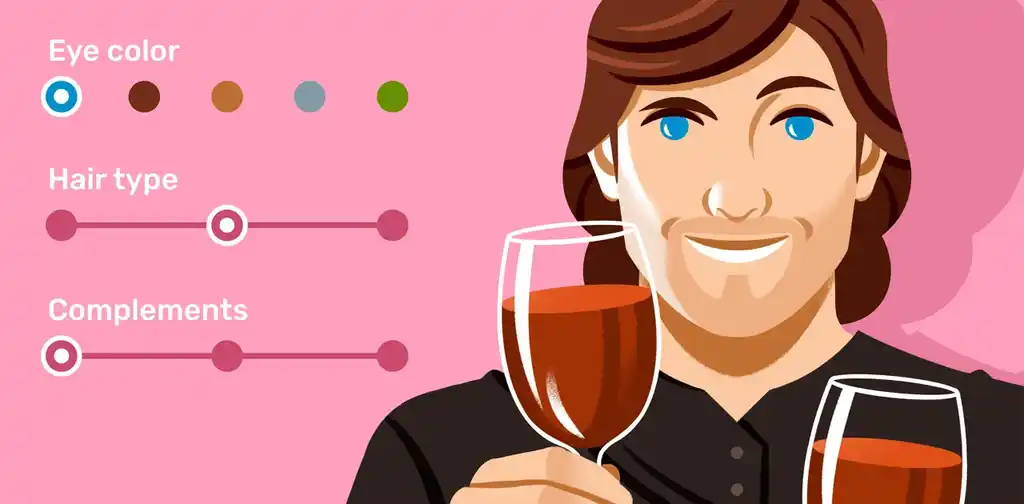
FREE RESOURCE
Reedsy’s Character Profile Template
Fill this out to develop characters who will have readers smitten.
8. Religious Romance
With religion being prevalent all over the world, it is no wonder that faith-driven romance novels have their own space in bookstores. In these novels, morality (often Christian) plays a vital role in informing the characters' lifestyles and decision-making. Generally speaking, religious romances focus more on the spiritual nature of love and will usually shy away from the steamier side of the genre.
Q: What techniques can authors use to hook readers from the first page?
Suggested answer
Start with your main character doing something somewhere and start in the middle of the action. If there is a hurricane coming, have them board up the windows of their home. If they are dreading an upcoming test at school, have them look over their last test grades and worry that this next test won't be any different.
You want to avoid "talking heads." This is what publishers think when there is dialogue going on between characters, and because there is no sense of "place" or "setting", the story comes off as characters "talking in space." This is why you want the characters to be somewhere and do something in every new scene you draft, not just the opening.
Readers like to visualize the action in a book, even if the "action" is inward. So start off with a visual picture of your main character doing something, and this should hook readers.
Melody is available to hire on Reedsy ⏺
I recall reading a memoir of a famous tennis player and he started it by plunging the reader into his experience of facing a relentless machine shooting balls across the net to him -- all the fatigue and pressure of trying to become a pro was encapsulated in the scene. Much more interesting than starting it with when and where he was born etc.
John is available to hire on Reedsy ⏺
Steaminess Rating: G
Gateway novel: Pieces of Forever by Valerie M. Bodden. Ava and Joseph love each other deeply, but an accident leaves Ava badly scarred. Feeling isolated and unworthy of his love, she pushes him away. Can God help her heal her heart's wounds and accept his love again?
9. Paranormal Romance
Paranormal romance books feature otherworldly characters like ghosts, angels, pixies, vampires and/or werewolves. And although we're some years past the heyday of True Blood and Twilight, this is still a thriving corner of romance fiction. Writing in this genre will require robust worldbuilding (check out this guide for advice), as the story may play out on another planet, magical or technological.
Steaminess Rating: PG-13 to R
Gateway novel: Dark Lover by J.R. Ward. Wrath is a purebred vampire seeking vengeance for the death of his parents, but his plans are put on hold when he is drawn to Beth Randall, an orphan half-breed girl with whom he falls in love.
10. Gothic Romance
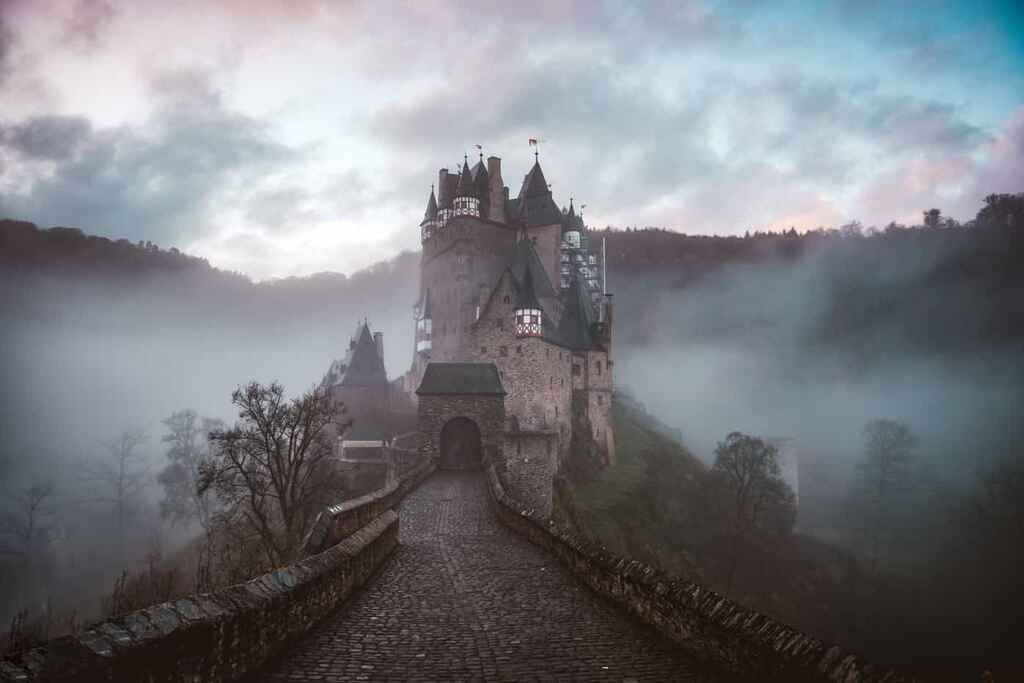 Gothic romance is a subgenre that explores the darkest of love stories through macabre settings and haunted characters. These types of romance novels can be set in the Middle Ages or modern times but will typically include elements of horror, mystery, and gore. Some common obstacles you might see at the core of a gothic love story are curses, ghosts, and terrible secrets.
Gothic romance is a subgenre that explores the darkest of love stories through macabre settings and haunted characters. These types of romance novels can be set in the Middle Ages or modern times but will typically include elements of horror, mystery, and gore. Some common obstacles you might see at the core of a gothic love story are curses, ghosts, and terrible secrets.
Q: What is the difference between “story” and “plot” in narrative craft?
Suggested answer
Story is a description of a connected series of events, with a clear beginning, middle and ending, while plot is the organization of those events – how we get from beginning to middle to end. So, for example, you might have a plot where events are ordered chronologically or where you move back and forth in time, or there could even be different threads within your manuscript.
To create an exciting and enthralling story, where readers will feel compelled to turn the page to find out what happens next, think about change and conflict. These should drive events and motivate your characters until the story reaches a satisfying conclusion. What conflicts or challenges do your characters face as the story progresses? How do these characters develop?
To create a successful plot, carefully think about organizing the events in a way that feels effective and purposeful. What are the best places to start and finish? Are there enough 'hooks' to keep readers engaged? Is the tension building up before a final resolution? Sitting down and plotting out before putting pen to paper (or opening up that blank document!) can really help you ensure that you are hitting that beginning, middle and ending in a satisfying way that will sustain your readers' curiosity and engagement with your writing.
Jenna is available to hire on Reedsy ⏺
Plot is what actually happens in the book. The sequence of events that takes place. While the story is more about the reasons behind what happens. Why does your main character want what she wants? What is she feeling and thinking at any given point? What do characters feel about each other and why? Story dives a bit deeper into the heart of the book, and not just the events that transpire. Strong books have both a strong plot and a strong story to them.
Melody is available to hire on Reedsy ⏺
Steaminess Rating: PG-13
Gateway novel: Affinity by Sarah Waters. After hitting a low point in her life, Margaret starts working to rehabilitate inmates at the gloomy Millbank prison. This is where she falls for Selina, a psychic medium who draws her into a world of spirits and ghosts.
11. Romantic Suspense
The hallmark of a romantic suspense novel is the fiesty blend of romance and high stakes — which may come from a plot involving drugs, murder, or a kidnapping. Note that however exciting the suspense elements might be, the relationship arc must still be at the novel's core. Nowadays, romantic suspense novels have started to displace gothic romance on bookshelves everywhere.
Steaminess Rating: PG to R
Gateway novel: Over the Edge by Suzanne Brockmann. On a mission to rescue an American senator's daughter from a hijacked plane, helicopter pilot Teri and Senior Chief Stan's personal and professional boundaries are tested as they develop feelings for each other.
As you start writing romance books, you'll soon see how important it is to understand your subgenre. With each type of book comes certain expectations from readers — and you will ignore popular genre tropes at your own peril.
In the next part of this guide, we're going to dig further into some of these popular tropes, which may, in turn, help you come up with some ideas of your own.

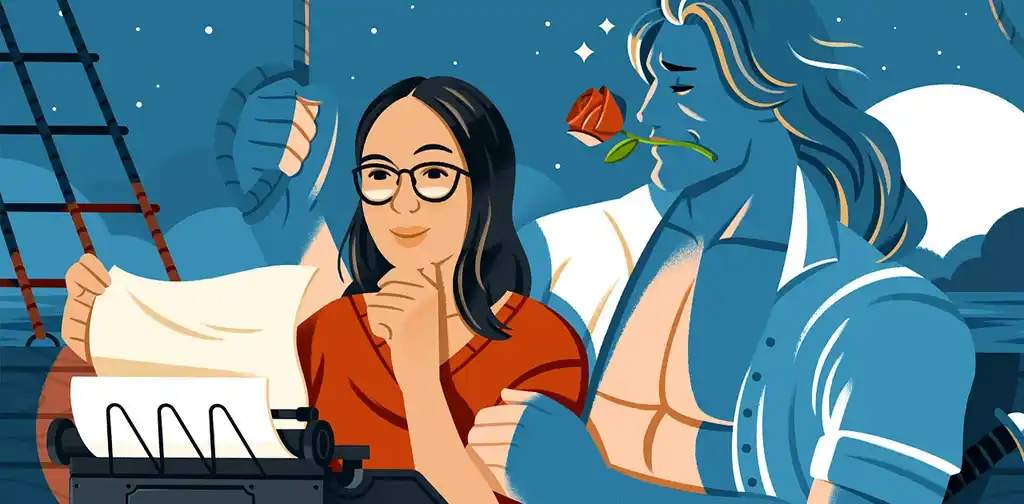

1 response
Monica says:
30/03/2020 – 12:52
Are Comedy Romances (RomCom) a separate genre? Or do they slot in under the general Contemporary Romance? Example: Books by Marian Keyes, Mhairi McFarlane, Sophie Kinsella etc. I'm asking because I recently joined a Romance Writers Group and was the only one writing a comedic plot... I felt a bit out of place, especially when my group leader announced Romance novels need to end with a HEA (mine doesn't).